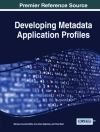This book delves into the complex intersection between artificial intelligence and human rights violations, shedding light on the far-reaching implications within the framework of discrimination and the pivotal role equality bodies play in combatting these issues. Through a collaborative effort between the Human Rights and Equality Institution of Türkiye (HREIT) and Hasan Kalyoncu University, the groundbreaking ‘International Symposium on the Effects of Artificial Intelligence in the Context of the Prohibition of Discrimination’ took place on March 30, 2022, in Gaziantep. This book is the outcome of this symposium, bringing attention to the alarming issues of ‘bias and discrimination’ prevalent in the application of artificial intelligence. With a commitment to Sustainable Development Goal 8.10 of safeguarding human rights in the digital realm and countering the adverse effects of artificial intelligence, this work is an essential contribution to the Human Rights Action Plan.
Comprising an array of insightful chapters, this book offers an in-depth exploration of artificial intelligence technologies, encompassing a broad spectrum of topics ranging from data protection to algorithmic discrimination, the deployment of artificial intelligence in criminal proceedings to combating hate speech, and from predictive policing to meta-surveillance. It aims to serve as a call to action, urging societies and policymakers to acknowledge the potential threats posed by AI and recognize the need for robust legislative frameworks and ethical principles to ensure that international standards on human rights are upheld in the face of technological advancements.
Table of Content
Introduction.- Socio-Political Analysis Of AI-Based Discrimination In The Meta-Surveillance Universe.- Rethinking Non-Discrimination Law In The Age Of Artificial Intelligence.- Data Protection Legislation, Artificial Intelligence and Discrimination.- Can The Right To Explanation Right In GDPR Be A Remedy For Algoritmic Discrimination?.- Sufficency Of Struglling With The Current Criminal Law Rules on the Use Of Artificial Intelligence in Crime Prevention of Discrimination in the Practices of Predictive Policing.- Issues That May Arise From Usage Of Artificial Intelligence Technologies In Criminal Justice and Law Enforcement.- Artificial Intelligence And Prohibition of Discrimination From The Perspective of Private Law.- Legal Challenges of Artificial Intelligence In Healthcare.- The Impact Of Artificial Intelligence On Social Rights.- An Investigation On The Detection Of Discrimination and Hate Speech Shared On Social Media Platforms Using Artificial Intelligence Methods.- The New Era: Transforming Healthcare.- Quality With Artificial Intelligence.- Managing Artificial Intelligence Algorithmic Discrimination: The Internal Audit Function Role.
About the author
Muharrem Kılıç, after completing his law studies at Marmara University Faculty of Law, was appointed as an associate professor in 2006 and as a professor in 2011 at the same institution. Kılıç has held multiple academic and administrative positions. He has worked as a professor, lecturer, and head of the department in the Department of Philosophy and Sociology of Law at Ankara Yıldırım Beyazıt University Faculty of Law. His academic interests are “philosophy and sociology of law, comparative law theory, legal methodology, and human rights law”. In line with his academic interest, he has scientific publications consisting of many books, articles, and translations, as well as papers presented in national and international congresses.
Sezer Bozkus Kahyaoglu graduated from Bosporus University and earned the degree B.Sc. in Management. Sezer has an M.A. in Money Banking and Finance from Sheffield University and Certification in Retail Banking from the Manchester Business School, both with a joint scholarship from the British Council and Turkish Bankers Association. After finishing her doctoral studies, Sezer earned her Ph.D. in Econometrics from Dokuz Eylul University in 2015. Sezer worked in the finance sector holding various positions at head offices. Sezer worked in KPMG Risk Consulting Services as a senior manager after which she joined Grant Thornton as a founding partner of advisory services working in Business Risk Services. She also worked in SMM Technology and Risk Consulting as a partner responsible for ERP Risk Consulting. During this period, Sezer was a lecturer at Istanbul Bilgi University in the Accounting and Auditing Program and the Ankara University Internal Control and Internal Audit Program.












